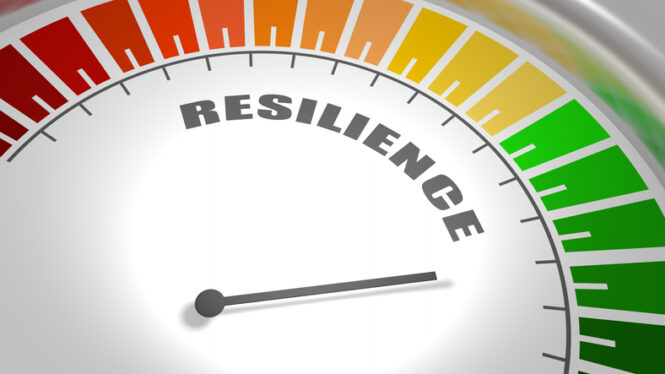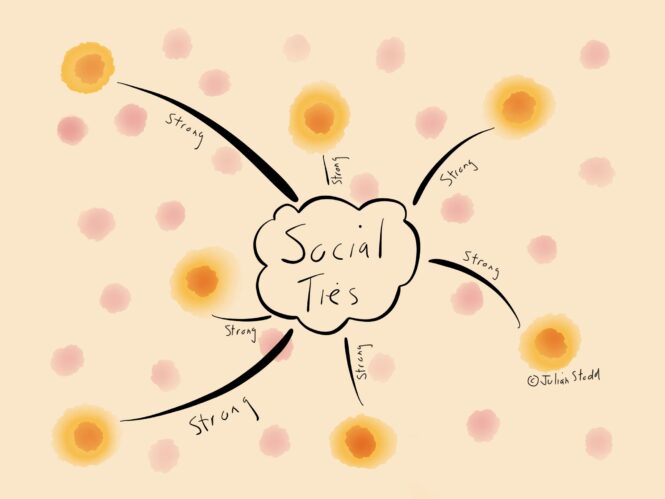The article is developed in partnership with BetterHelp.
Stress is a normal part of life for most adults, but short-term stress can sometimes increase rapidly in response to events or circumstances beyond a person’s control. When that happens, it can sometimes feel like stress goes from manageable to overwhelming in an instant. Stress spikes are nearly unavoidable, but improving resilience and learning a few strategies to manage acute stress may make spikes much easier to navigate. This article will discuss a few ways to build resilience to stress and calm down quickly when stress rises.
Stress resilience

An important part of managing stress spikes is preparation. Making stress management a daily priority is extremely helpful when stress rises rapidly. Not only does a person already have tools in place to help manage the sudden increase, but daily stress management will also help reduce the impact of acute stress. Resilience to stress refers to lowering that impact; the more resilient a person is, the less likely they are to be adversely affected by stress. Below are a few ways to build stress resilience.
Self-care
While self-care has become a common buzzword, its definition may not be consistent from person to person. Generally, self-care refers to any health-promoting behavior that bolsters mental and physical well-being. While it takes many forms, not all self-care activities are created equal. Many experts recommend developing a strong self-care foundation with three essential considerations:
- Get enough sleep. Sleep is vital for both mental and physical health. Poor sleep quality can make it harder to complete daily tasks or adhere to other forms of self-care. It may also lower mood and increase susceptibility to stress.
- Eat a healthy diet. A well-balanced nutritious diet supports mental and physical health by providing enough energy to engage in self-care and other essential stress management activities.
- Exercise. Exercise may be the most important form of self-care. It is associated with long and short-term benefits, meaning a workout can help lower stress immediately, and an exercise routine sustained over time is one of the best ways to help smooth out stress spikes.
Social ties

Evidence suggests that positive social interactions are an effective way to bolster long-term stress management. The interactions don’t need to specifically relate to stress, although seeking support is always recommended. There is one important caveat: the interactions need to be positive. Social interactions that are unpleasant or leave a person feeling unvalued are not an effective way to lower stress. It’s important to build a robust support network of people who genuinely care.
Work with a therapist
As the stigma surrounding mental health care continues to decrease, more and more people are choosing to work with a therapist before problems become severe. Therapists or other mental health professionals are well-qualified to help come up with stress management and prevention strategies and may be especially helpful if you’re finding it difficult to avoid intrusive thoughts or reminders about your stressors. For example, if you’re experiencing a breakup, you might ask, “Why do I dream about my ex?” A therapist may not be able to help you answer that question, but they can likely help address the underlying cause itself.
Establish a Routine
Establishing a daily routine can significantly bolster your ability to handle stress spikes. Consistency in your daily schedule helps in setting expectations and reducing uncertainties that often contribute to stress. A routine might include fixed times for waking up, meals, exercise, work, relaxation, and sleep. Sticking to these routines helps in maintaining a sense of control over your day, which can be calming during unpredictable times. Additionally, routines can improve sleep patterns, eating habits, and overall health, further reinforcing your resilience against stress.
Mindfulness and Meditation

Mindfulness and meditation have been proven to reduce stress by promoting relaxation and presence in the moment. Regular practice of mindfulness exercises, such as meditation, deep breathing, or yoga, can help you develop a keen awareness of your thoughts, feelings, and body sensations. This awareness enables you to recognize stress symptoms early and manage them more effectively. Mindfulness can also improve concentration and emotional regulation, which are vital in maintaining mental clarity and a sense of calm during stressful times.
Technology and Stress Management
In the digital age, technology offers various tools that can aid in managing stress effectively. Apps designed for meditation, sleep improvement, and habit tracking can be particularly useful. Additionally, virtual therapy sessions and online support groups provide accessible mental health resources without the need to travel. Leveraging these technologies can make it easier to incorporate stress management practices into your daily life and provide you with immediate assistance and guidance whenever stress spikes occur.
Calming down quickly

When stress rises quickly, it can sometimes feel like it is out of control. One of the first steps to managing acute stress is learning how to leverage the body’s natural calming process to reduce feelings of anxiety, fear, and stress quickly. Some common methods are below:
- Deep breathing. While it may seem cliche to some, evidence suggests that long, slow, deep breaths are one of the most effective ways to calm down quickly.
- Get time in nature. Spending time in a natural environment or green space is shown to reduce stress considerably. When someone is feeling overwhelmed, a trip to a park, woods, or nature trail might help stop the stress from escalating.
- Relax your body. Take note of muscle tension and consciously release it.
- Visualize calm. It is often helpful to visualize yourself as calm and relaxed, even while feeling stressed. Picture your body being relaxed, and imagine working through your stress while calm.
If you’ve found it challenging to calm down quickly, you may want to reach out to a therapist or other mental health professional for guidance. They can recommend many more strategies, and can help investigate the underlying causes of stress. Mental health professionals can help come up with strategies and guidance that suit your needs specifically, making them a viable option for developing robust stress management plans.
 Imagup General Magazine 2024
Imagup General Magazine 2024



